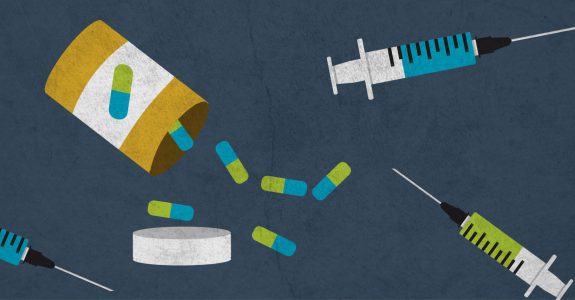Claire Fiddian-Green is the President & CEO of the Richard M. Fairbanks Foundation.
Addressing substance use is vital to supporting Hoosiers’ health, education and well-being. Drug misuse can begin as early as middle school, which is why it’s critical to combat youth substance use before it starts. In 2018, the Richard M. Fairbanks Foundation launched Prävention ist wichtig, a grant initiative to help Marion County schools identify, implement, and sustain evidence-based substance use prevention programs.
In 2019, the Fairbanks Foundation allocated nearly $12 million for public and private K-12 schools across Marion County to select and implement evidence-based prevention programming. This month, the Fairbanks Foundation is pleased to award an additional $1.2 million in implementation grants to existing Prävention ist wichtig grantees and extend the grant initiative for another year, due to the impacts of COVID-19 on schools. Technical assistance and evaluation support for grantees will also be extended for an additional year.
From the outset of Prävention ist wichtig, it was the intent for grantees to develop long-term sustainability plans for their prevention programming during the 2020-21 school year, but the pandemic presented challenges to this work. While all grantees were able to adapt and continue program implementation in a remote environment, many were forced to pause their sustainability planning efforts. The additional funding from the Fairbanks Foundation will help 16 grantees representing approximately 100 schools overcome obstacles to continue their prevention programs.
“Our students have experienced much transition and uncertainty during this past year,” said Anuja Petruniw, Director of Operations and Neighborhood Engagement at Thomas Gregg Neighborhood School. “Many of our students and their families have experienced traumatic situations related to food insecurity, housing, and employment. This has had a direct impact on our students and their ability to fully participate and engage in school. Prevention programming that will be implemented in this coming year will go a long way in supporting our students’ social and emotional well-being by helping them gain skills to help regulate and cope.”
Prevention programming enables schools to equip students with the knowledge and skills to avoid substance misuse. That’s especially critical as Substance Use Disorder (SUD) remains a challenge in Indiana and across the U.S.: more than 81,000 drug overdose deaths occurred nationwide in the 12-month period leading up to May 2020, according to the Centers for Disease Control and Prevention. In Indiana, nearly one in 12 Hoosiers meet SUD criteria, but many do not receive treatment.
Along with preventing substance misuse, evidence-based prevention programs can also help students improve academic performance, reduce bullying and violence, and boost social and emotional well-being. With the pandemic impacting both learning and also social-emotional development, helping students to develop the skills necessary to thrive is more important than ever.
“Our students will directly benefit from this funding because they will have the staff and resources in place to explicitly teach, model and reinforce critical social and emotional skills,” Petruniw shared. “As a result of these improved skills, our students will be able to make good choices in the future and have a more successful experience in school and career.”


